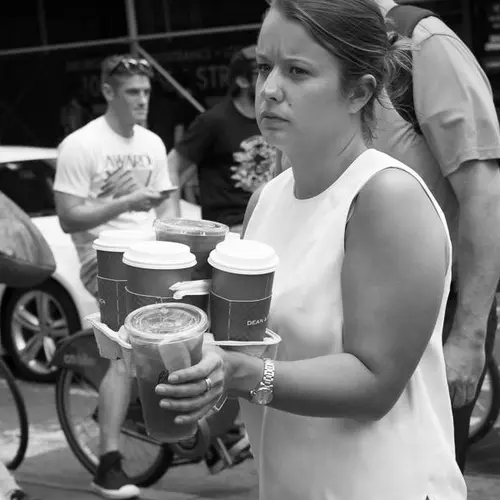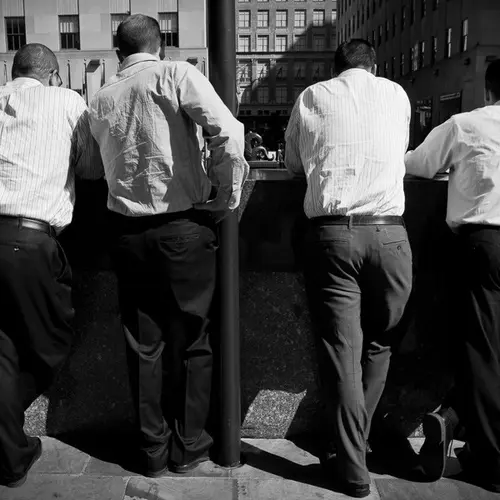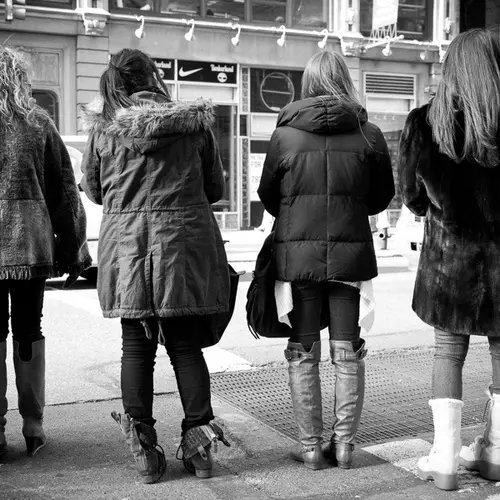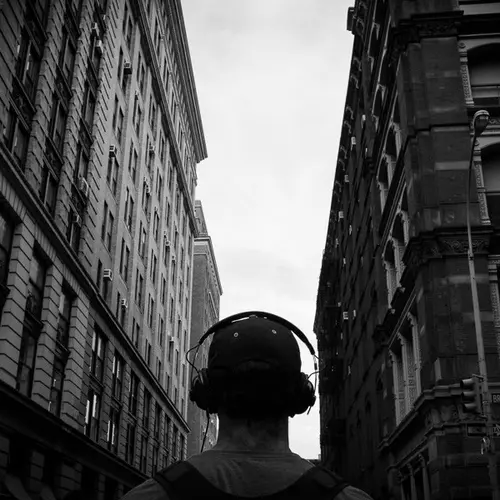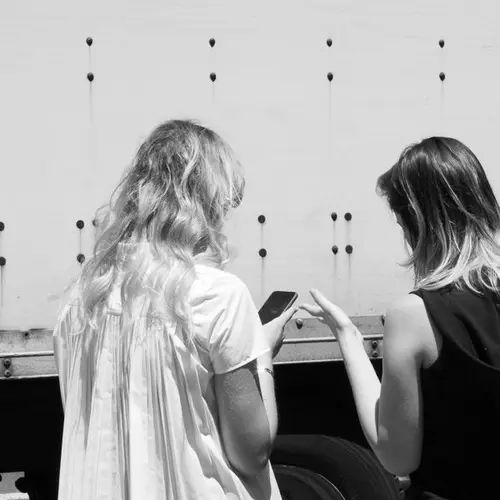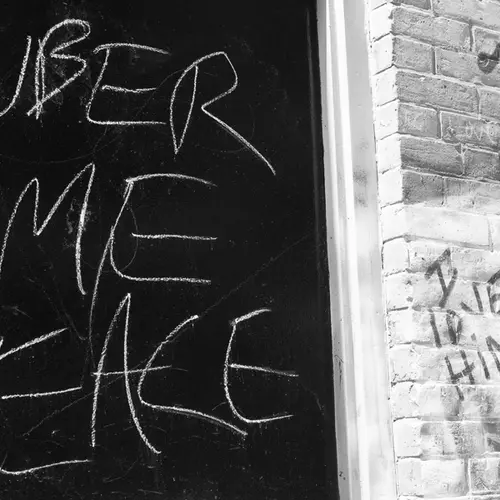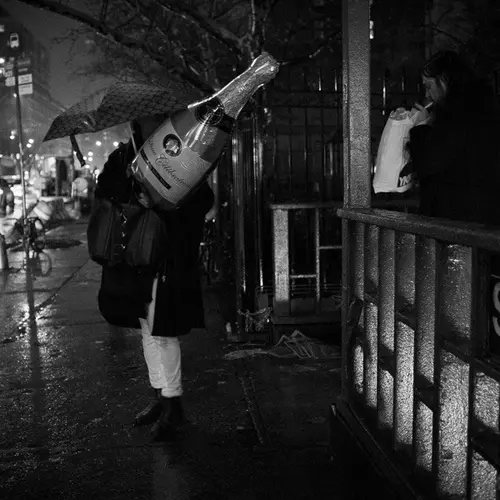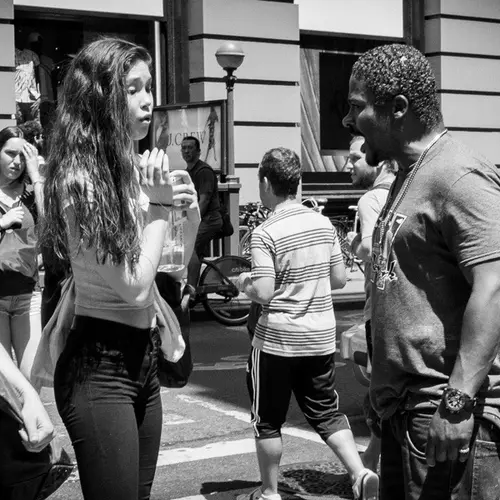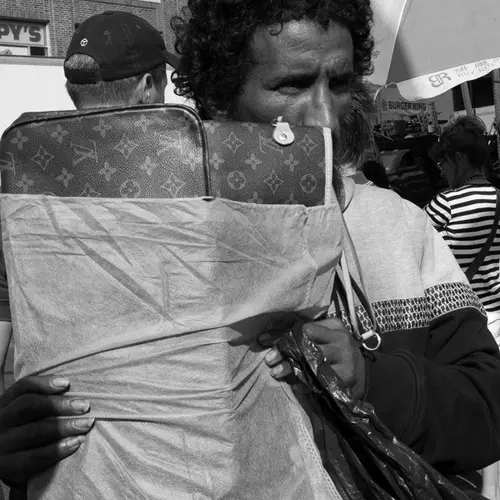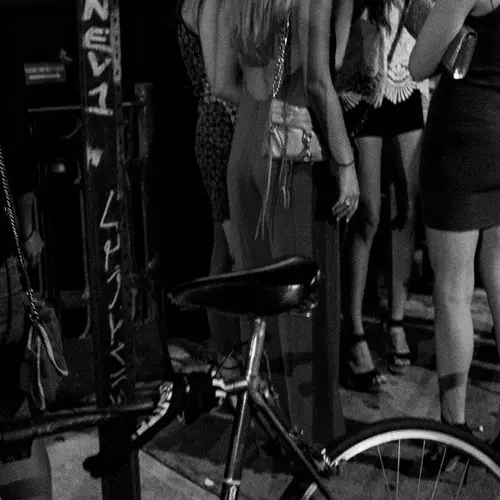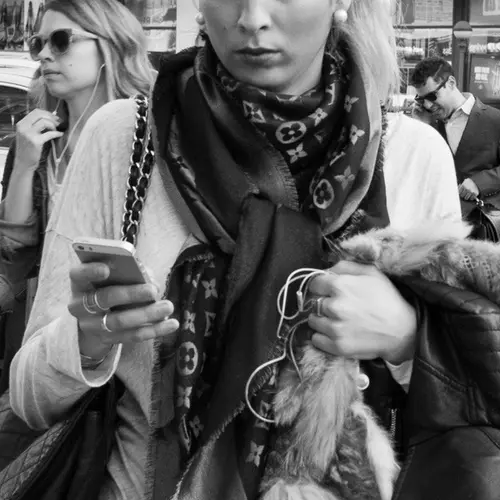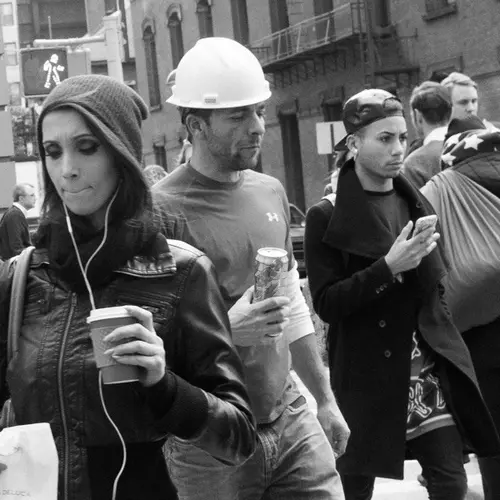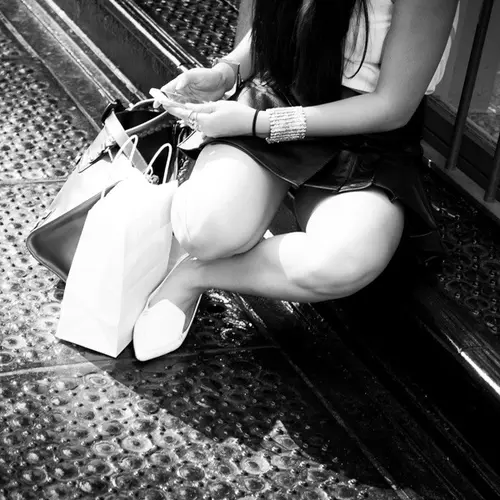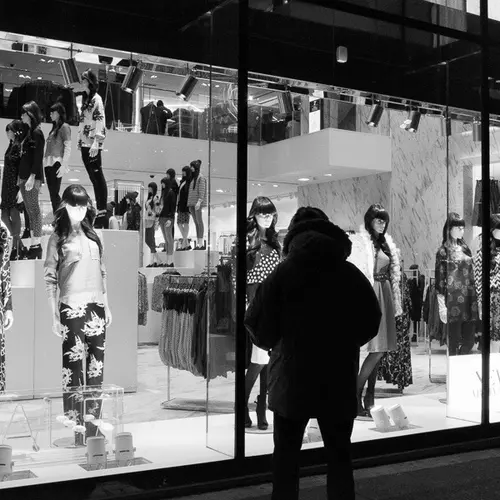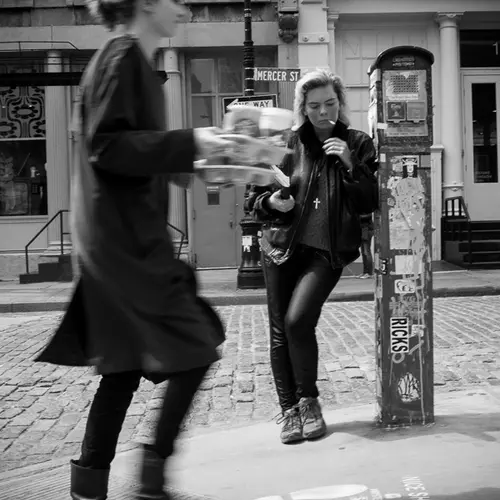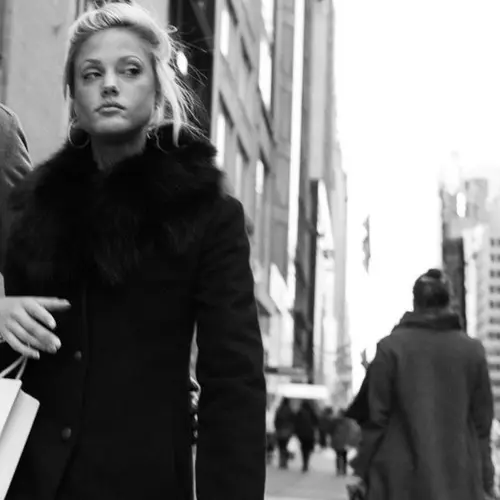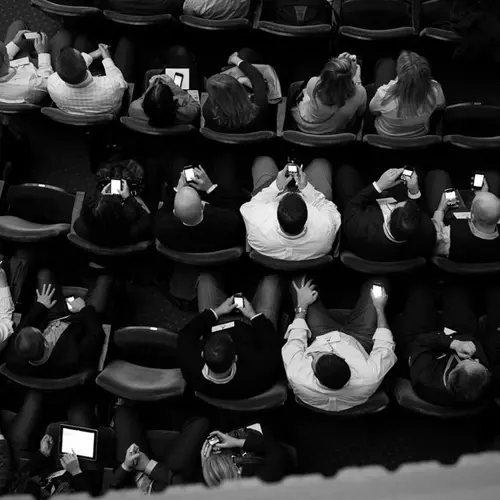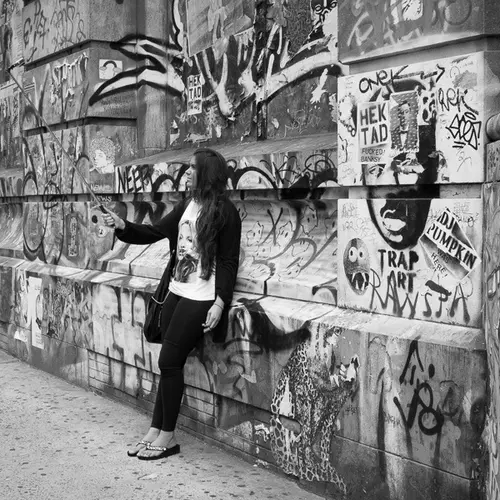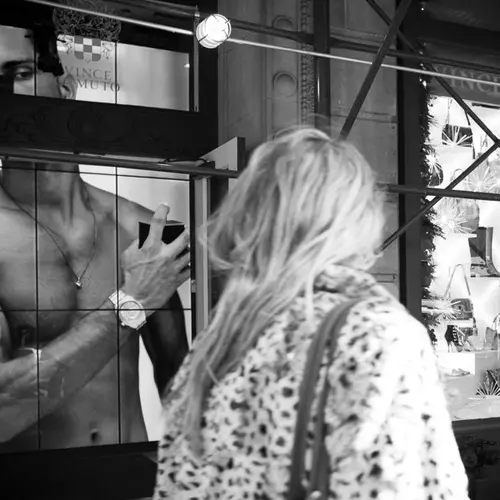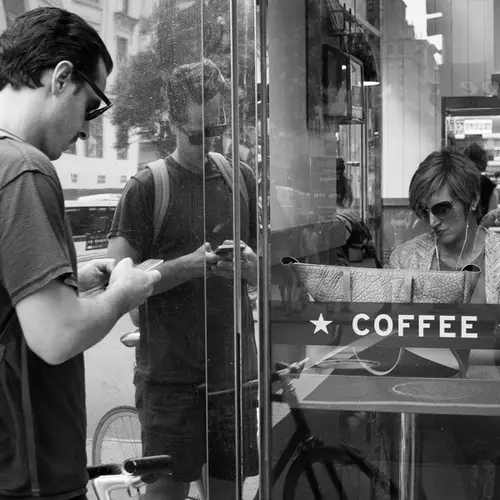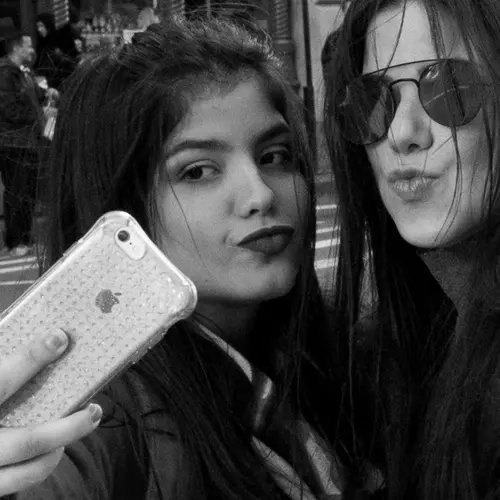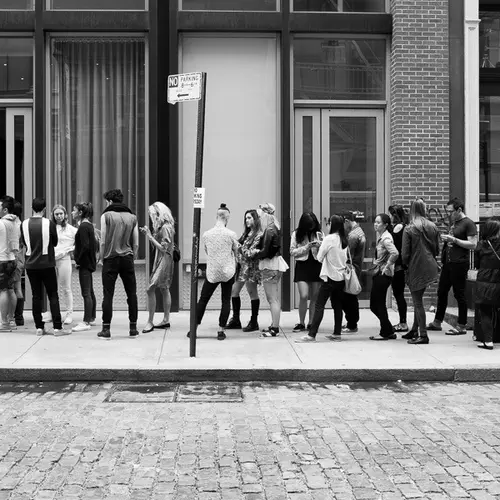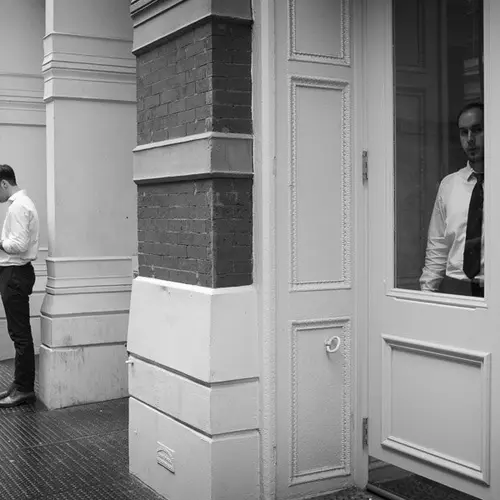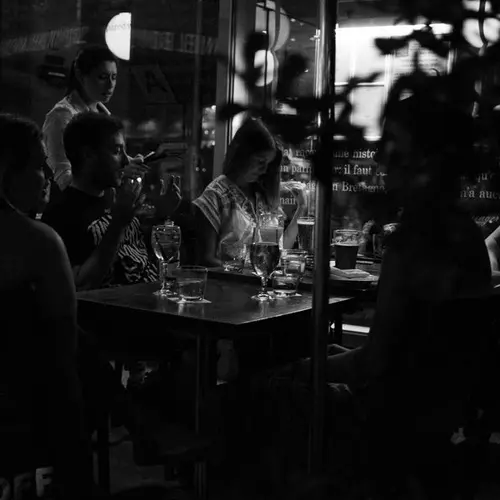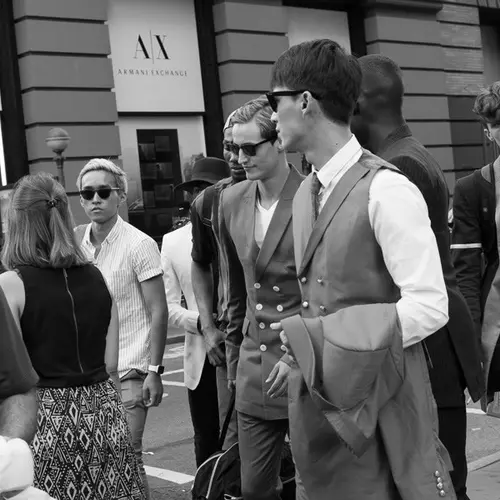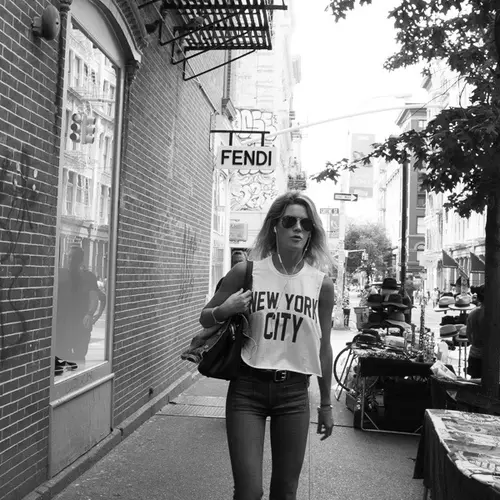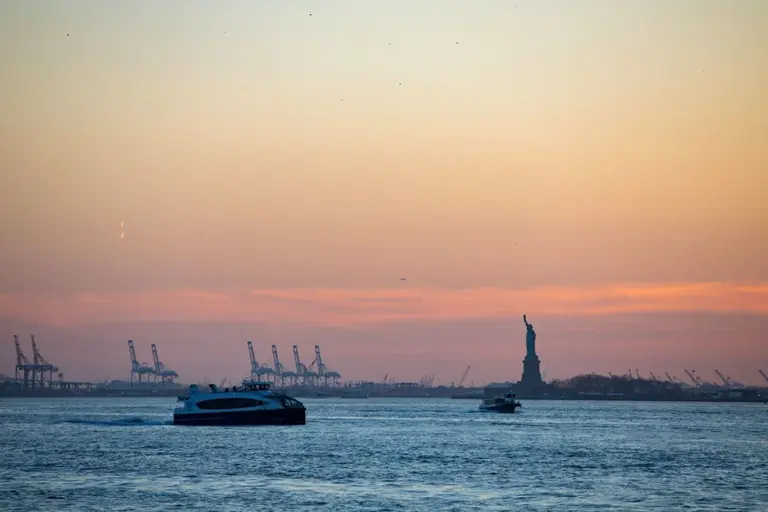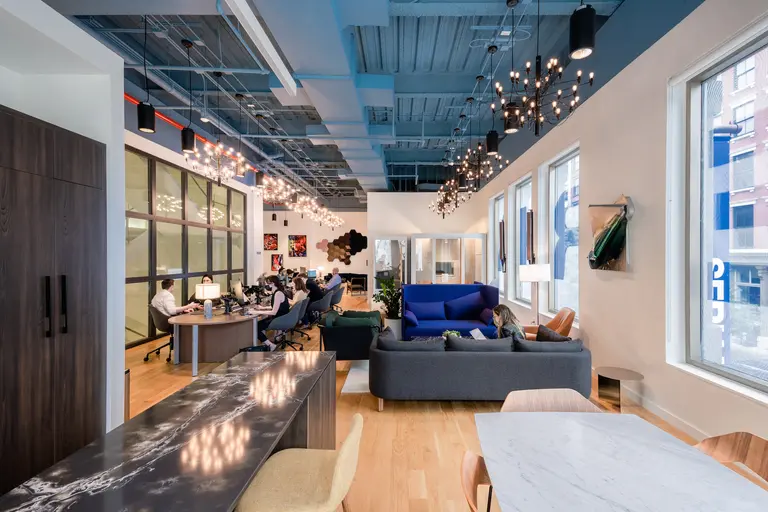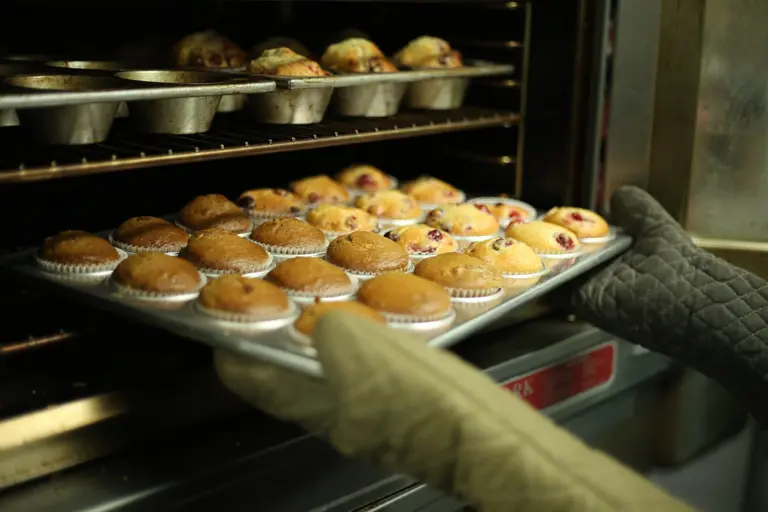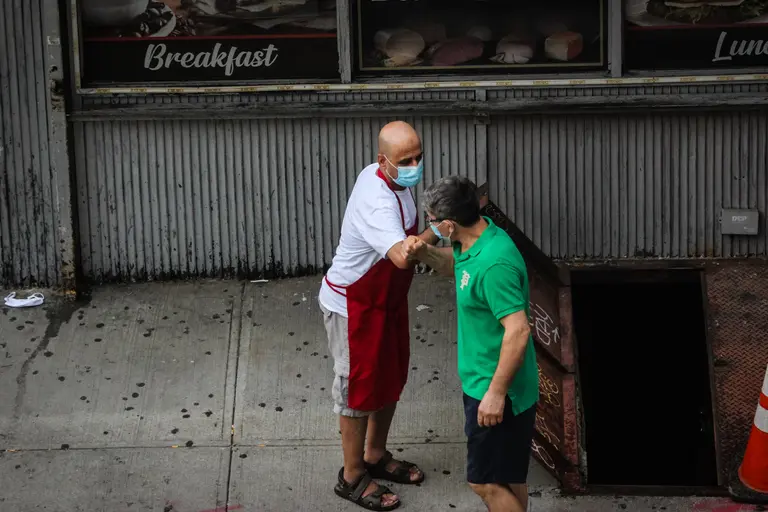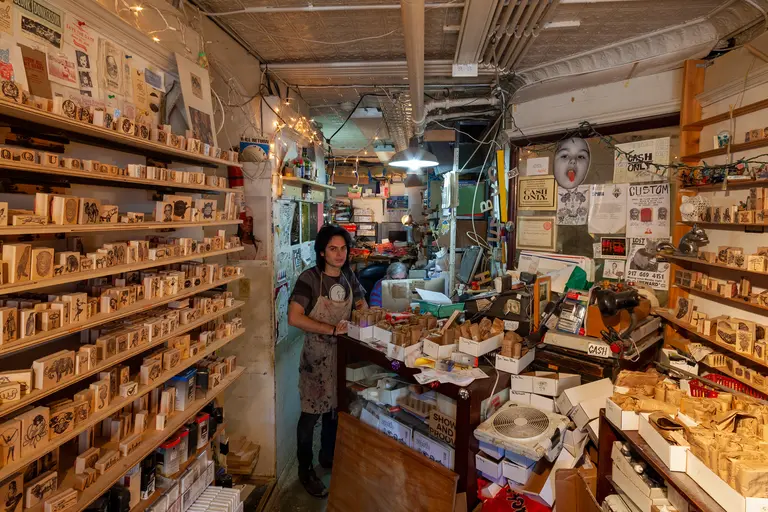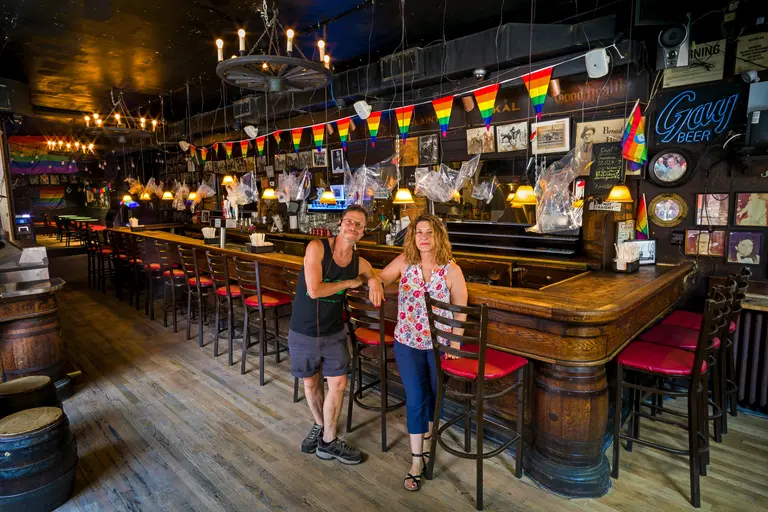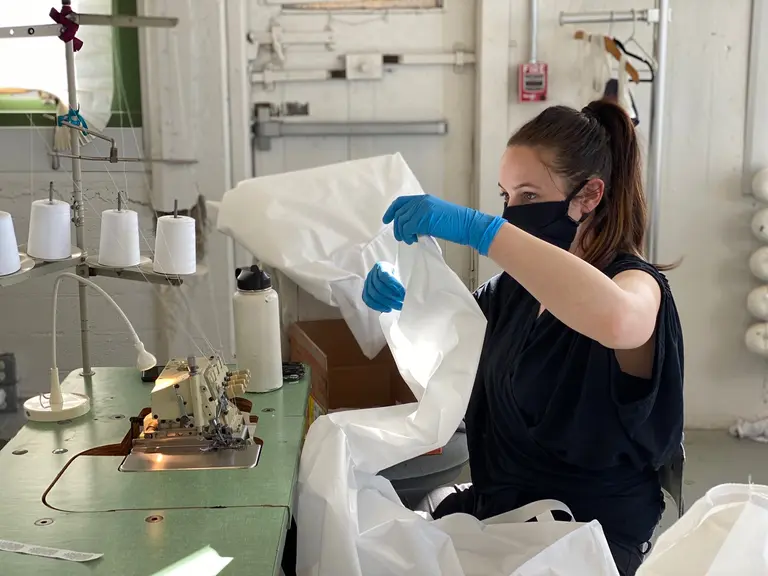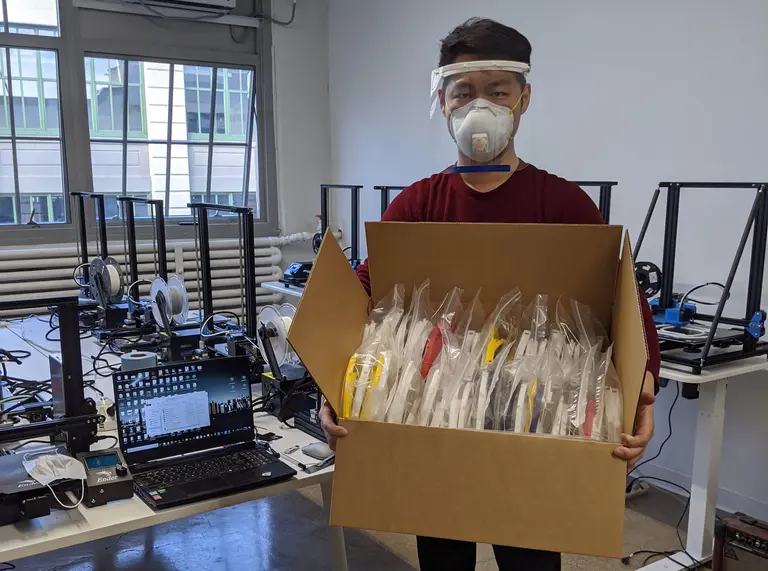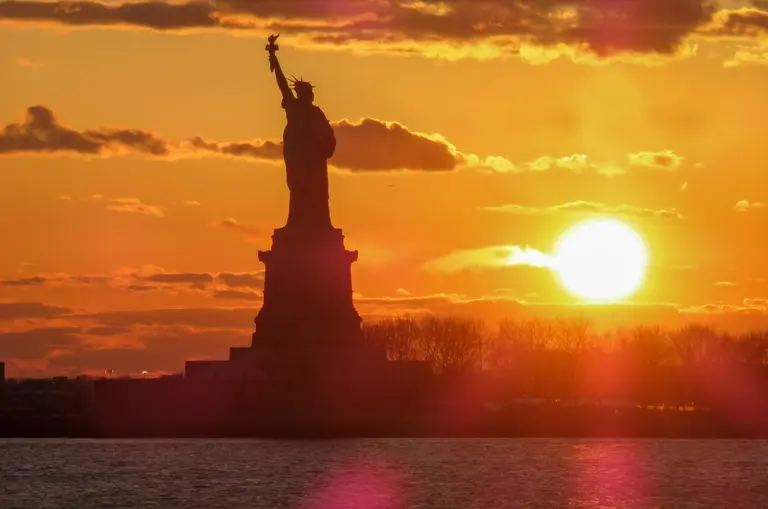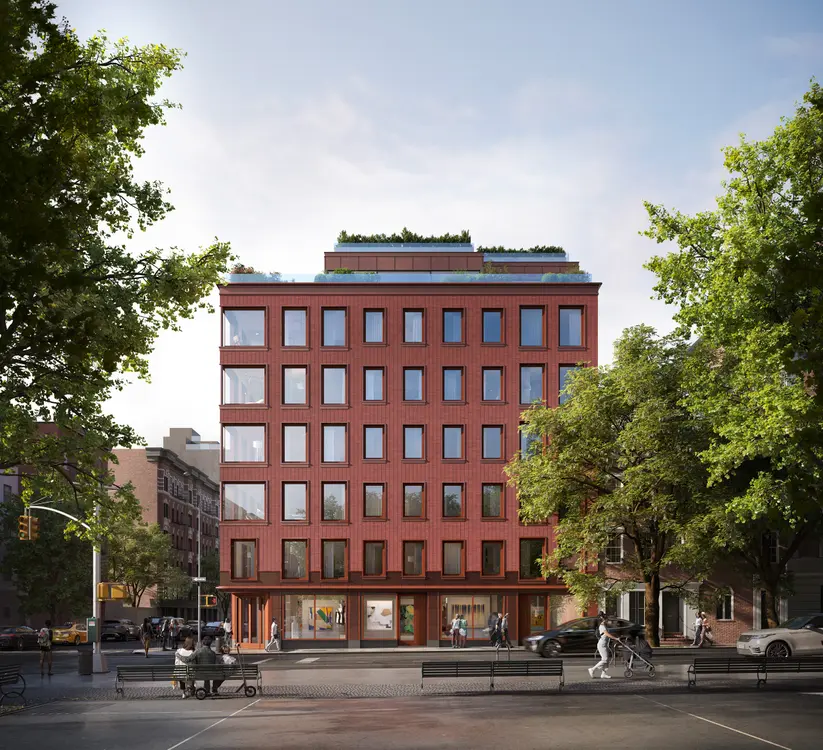The Urban Lens: ‘Zombie City’ exposes distracted New Yorkers in a gentrifying city
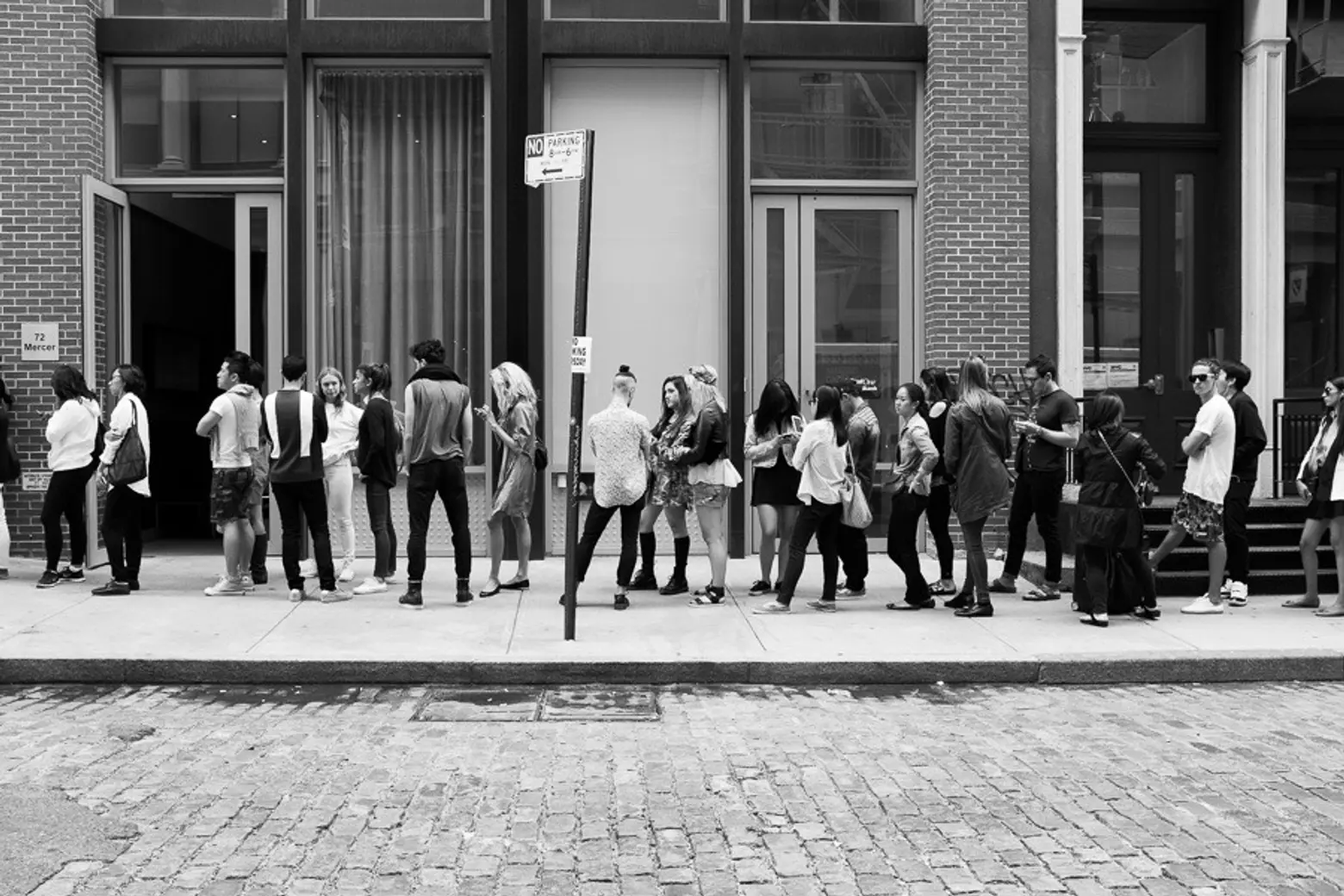
6sqft’s ongoing series The Urban Lens invites photographers to share work exploring a theme or a place within New York City. In this installment, fine art and portrait photographer James Maher exposes the changing face of NYC post 9/11. Are you a photographer who’d like to see your work featured on The Urban Lens? Get in touch with us at tips@6sqft.com.
It all started at the University of Madison in Wisconsin with a surprisingly successful fake ID “business,” which was James Maher’s first introduction to portraiture and Photoshop. After moving back to his hometown of New York post-graduation, Maher studied at the International Center for Photography, assisted commercial photographers, and became a certified tour guide, exploring the architecture and streetscapes of the city. In 2006, he opened his own photography business, combining his varied interests, which also come through in his black-and-white series “Luxury for Lease,” where New Yorkers are captured candidly against the background of New York. In it, Maher exposes how quickly things changed in the years after 9/11; instead of coming for “acceptance and freedom” and “a culture of creativity,” wealthy persons from the suburbs and elsewhere began to move back “with an insatiable appetite.” By snapping photos of distracted New Yorkers, many of whom are zombie-fied staring at their phones, Maher examines the “disconnection, hyper-gentrification, conformity, and consumerism” that’s infiltrated our streets.
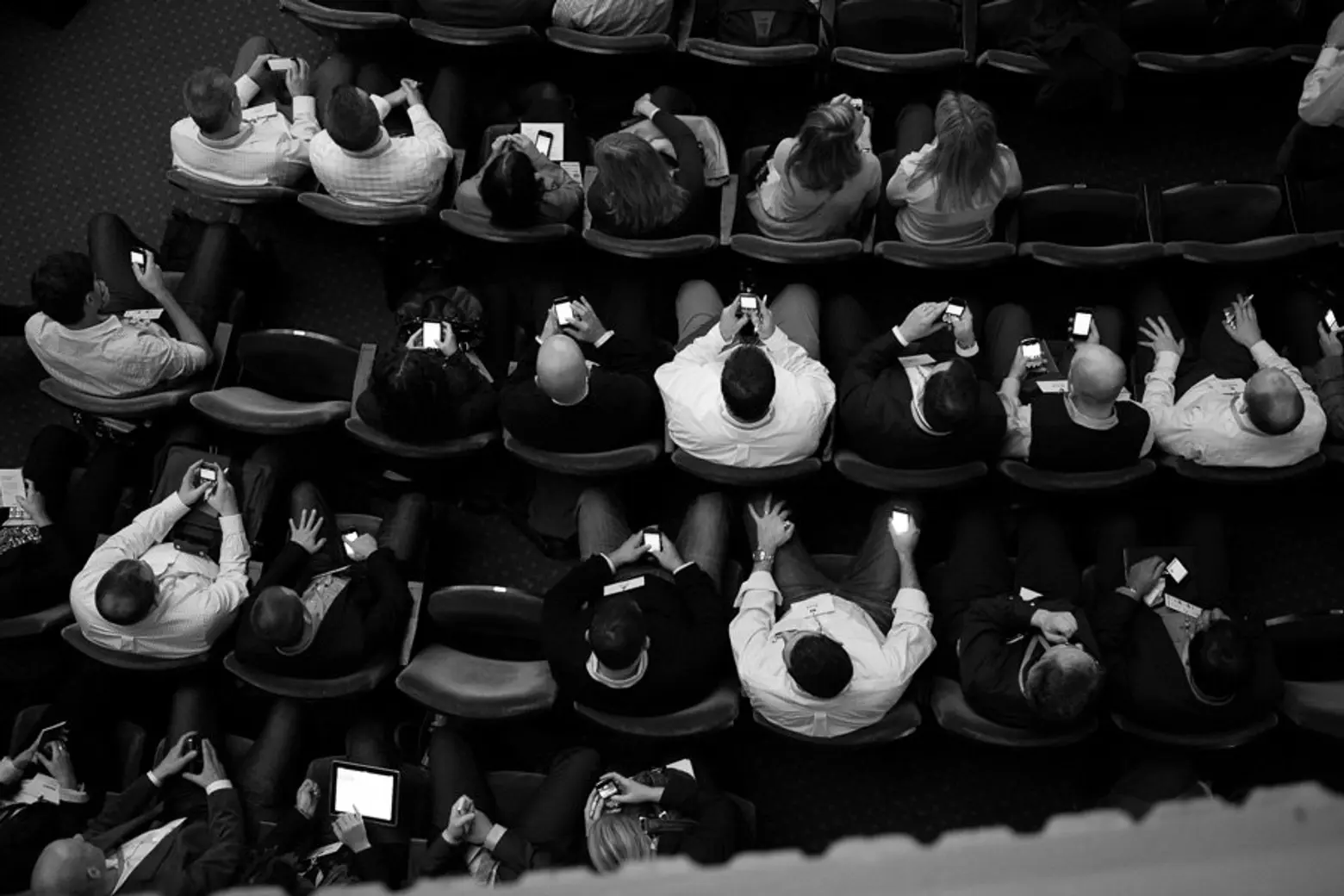
Tell us a bit about the series; what inspired you to photograph the post-9/11 “Zombie City?”
The idea for it came organically. I read a lot about the history of New York and about gentrification and the change in the city. I used the photos I was taking to guide me and build it up over the years. The original title idea, Zombie City, obviously alluded to the fact that the people in the city were becoming more ‘zombie’ like, but I changed that title because I don’t think it explained the situation well enough at all. Really it’s about what’s happening as people around the world are flocking back to New York as they realize it’s safe again (which it has been for a long time). They’re used to types of comforts, conformity, and standards that New York just didn’t give you. The city was about being different and standing out, but you’re slowly seeing that go away. Longtime stores are disappearing and being replaced by national chains. It’s the suburbanization of the city.
The city streets were always about bringing people from all walks of life together. New Yorkers weren’t afraid of people that looked different from them, were of a different culture, or were down on their luck or homeless. All these people lived together and liked living together for the most part. Now you have newer people who aren’t used to that and don’t like that. You see people walking down the streets with their heads in their phones and with huge headphones on. Headphones have turned into such a style thing, but it’s really just people being disconnected from their community and neighbors. People have more avenues for connection than ever before, but they seem so much lonelier than they used to.
The title Luxury for Lease is about all these companies coming into New York providing this feeling of luxury, conformity, and safety for people, but it’s just a mirage. These new “luxury” buildings pop up but they’re cheaply and quickly made, they have boring white walls and safe grey kitchens that I can’t imagine feeling creative in, and an amenity package that no one ever uses because they’re all working too much. It’s all about the money. The second people can’t take it anymore and move away to go back to a regular life, there is the next person waiting in line to move in.
What has the experience been photographing these distracted New Yorkers? Do they even notice they’re having their photo taken?
Some people notice, but usually they don’t. I use a camera that is not very large and I’ve gotten good at getting close and shooting in a way that doesn’t draw attention or make people uncomfortable. I want to get these photographs because I think they’re very important, but I don’t want to make people uncomfortable unless I have to. If I get caught, I just smile and talk about how I’m doing a project on New Yorkers. It’s really never an issue though.
You mention that Jane Jacobs’ “sidewalk ballet” is being replaced by”disconnection, hyper-gentrification, conformity, and consumerism.” Do you think this still exists?
There are so many people that have lived here for a long time and are part of the true character of New York. There are still old mainstay stores and restaurants (although a lot are being purged very quickly). There are people moving here every day who fit the original mold as well. The true character of the city will be around for a long time–it’s not something you can kill overnight, but it’s changing very very fast, and a lot of people worry that it will be killed.
In your opinion, what are the most important things we can do to regain some of the city’s soul?
We need affordable housing. We need commercial rent control for a portion of the city. We need to protect our housing stock from Airbnb and people investing their money in New York apartments without ever moving in. A certain percentage of the city has to be friendly to middle class and poorer people. People should be able to move here without needing your parents to subsidize you. People need free time–they can’t spend all their time spending their money on rent. So I don’t know what it will take, if this is a short-term or long-term trend, or what the outcome will be. Perhaps it will take a correction of some sort; maybe the mystique of the city needs to be taken down a notch.
On a more positive note, what is your favorite thing about NYC and New Yorkers?
It’s funny because I know this all sounds negative, but I love the city. I’ve spent my life here, and I don’t think I could survive anywhere else. There’s so much good here. I love how diverse it is. I love being exposed to so many different types of people and ideas. I love the competitiveness and energy (although that also gets exhausting as well, so it’s love-hate). I love the culture, the weirdness, and the arts that are still here. People here are tough and it takes a lot to make them uncomfortable. I like making myself uncomfortable when I can and this city allows me to do that. I feel like in other places people strive to be comfortable, while here people strive to be uncomfortable.
What else are you working on?
I’ve been working on a five-year interview and portraiture project in the East Village neighborhood where I live and where my family is from. The neighborhood was originally filled with immigrants, then turned to a beat-up, drug-ridden, and burned-out place in the ’70s and ’80s, and it has historically been where much of the counter-culture and artistic energy has been. I’ve been trying to tell the story of the neighborhood one person at a time with weekly interviews and portraits. My next hope is to do something on the Lower East Side with the immigrant population, but that’s just in the initial thought stage now.
Instagram: @jamesmaherphoto
Website: jamesmaherphotography.com
▽ ▽
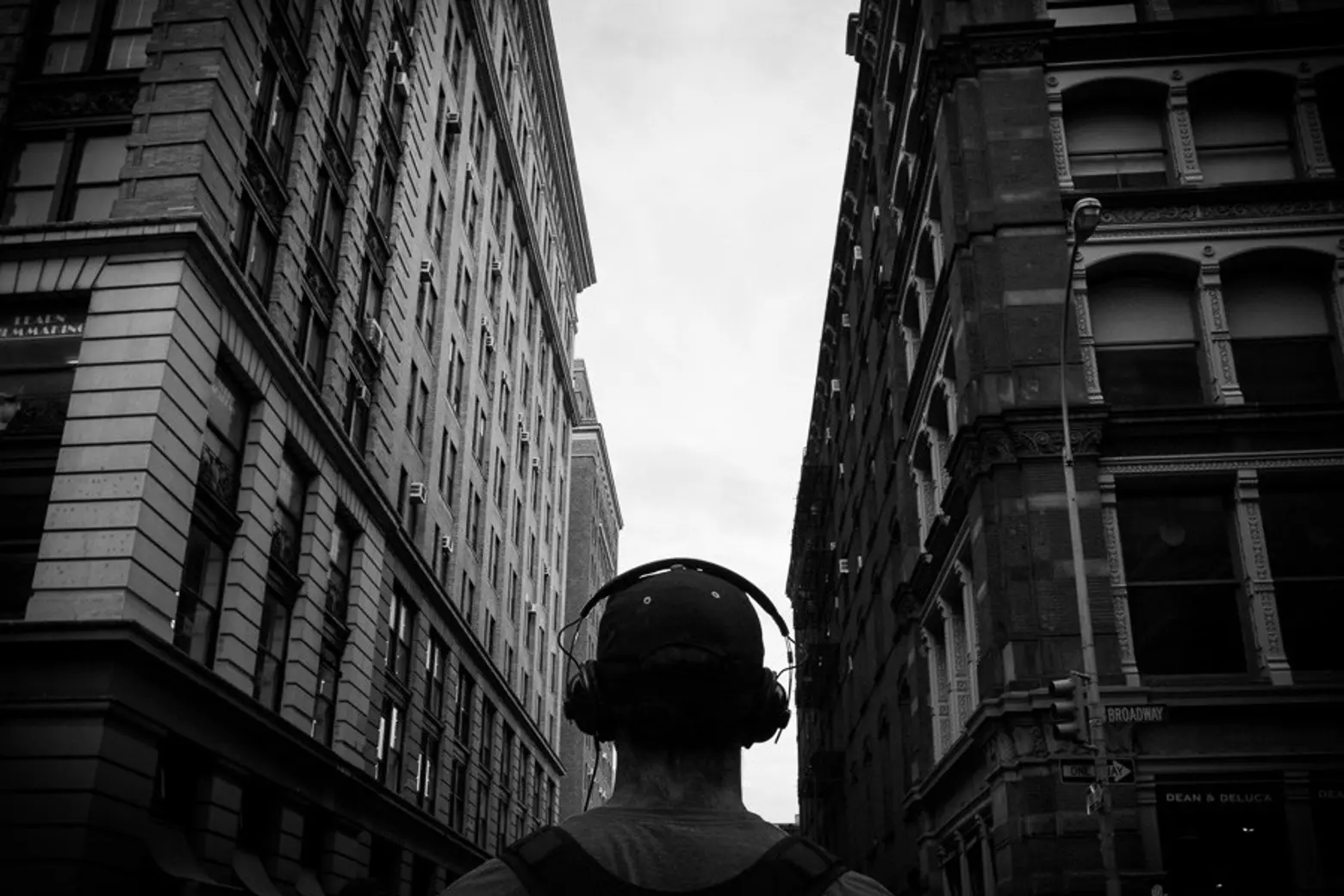
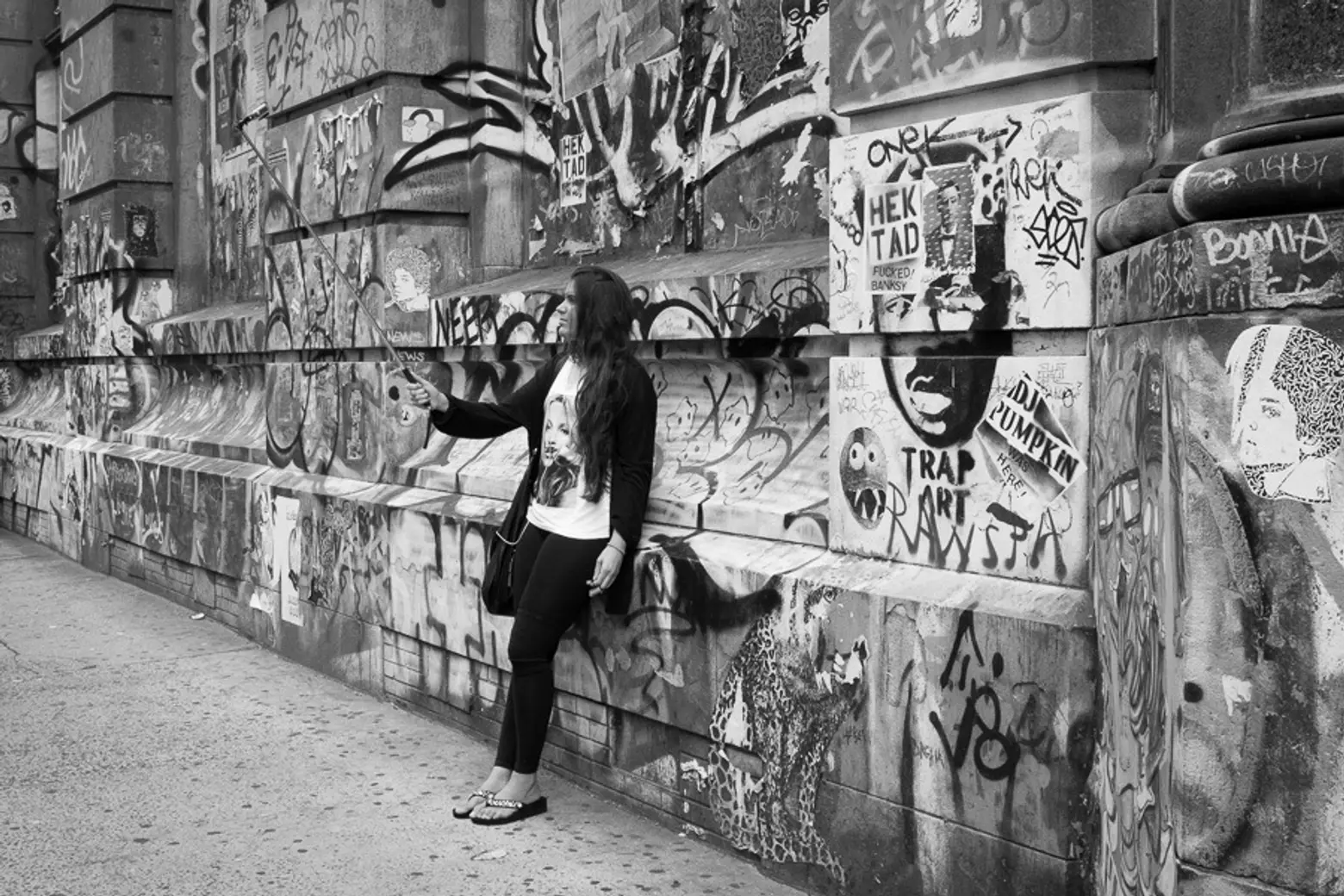
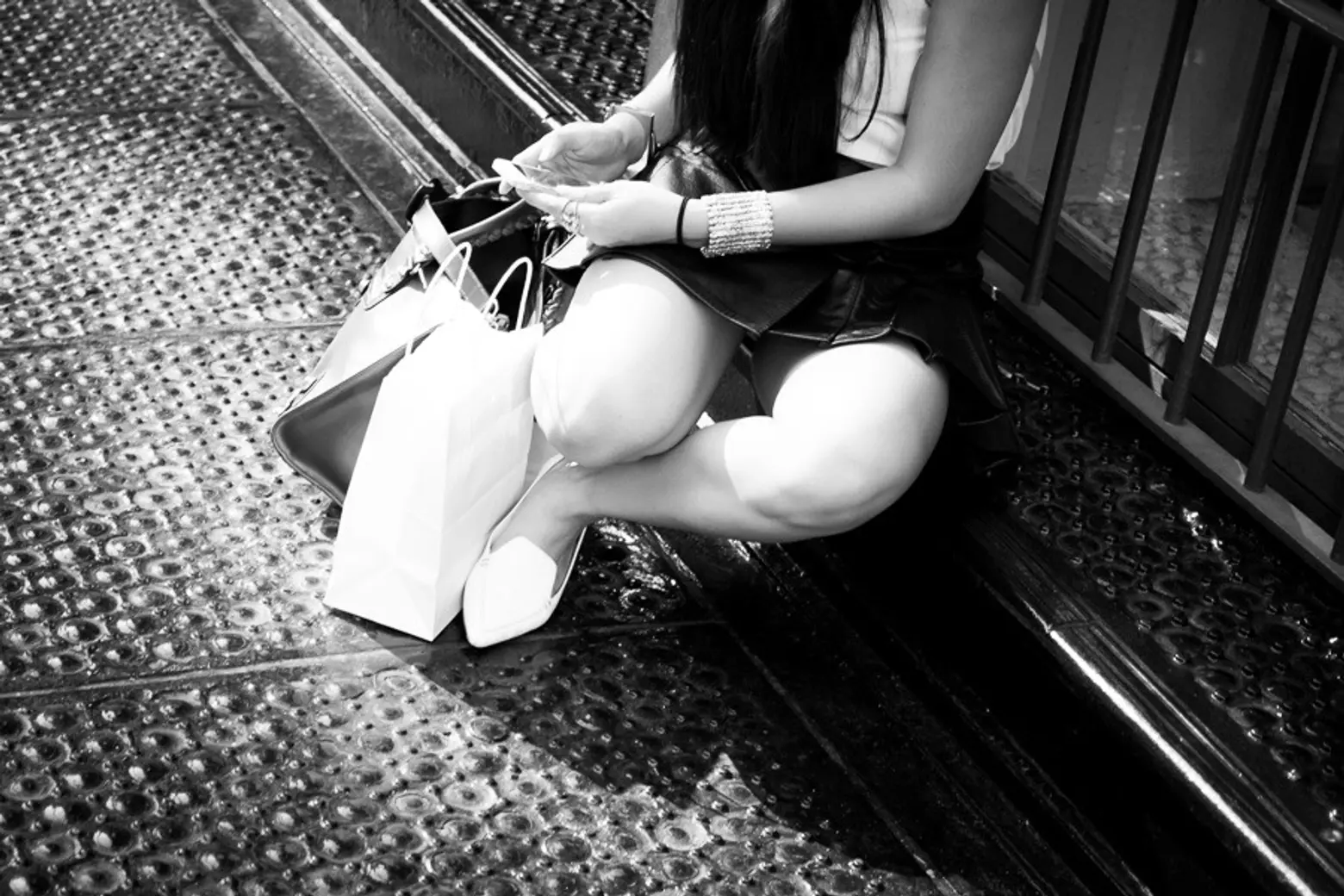
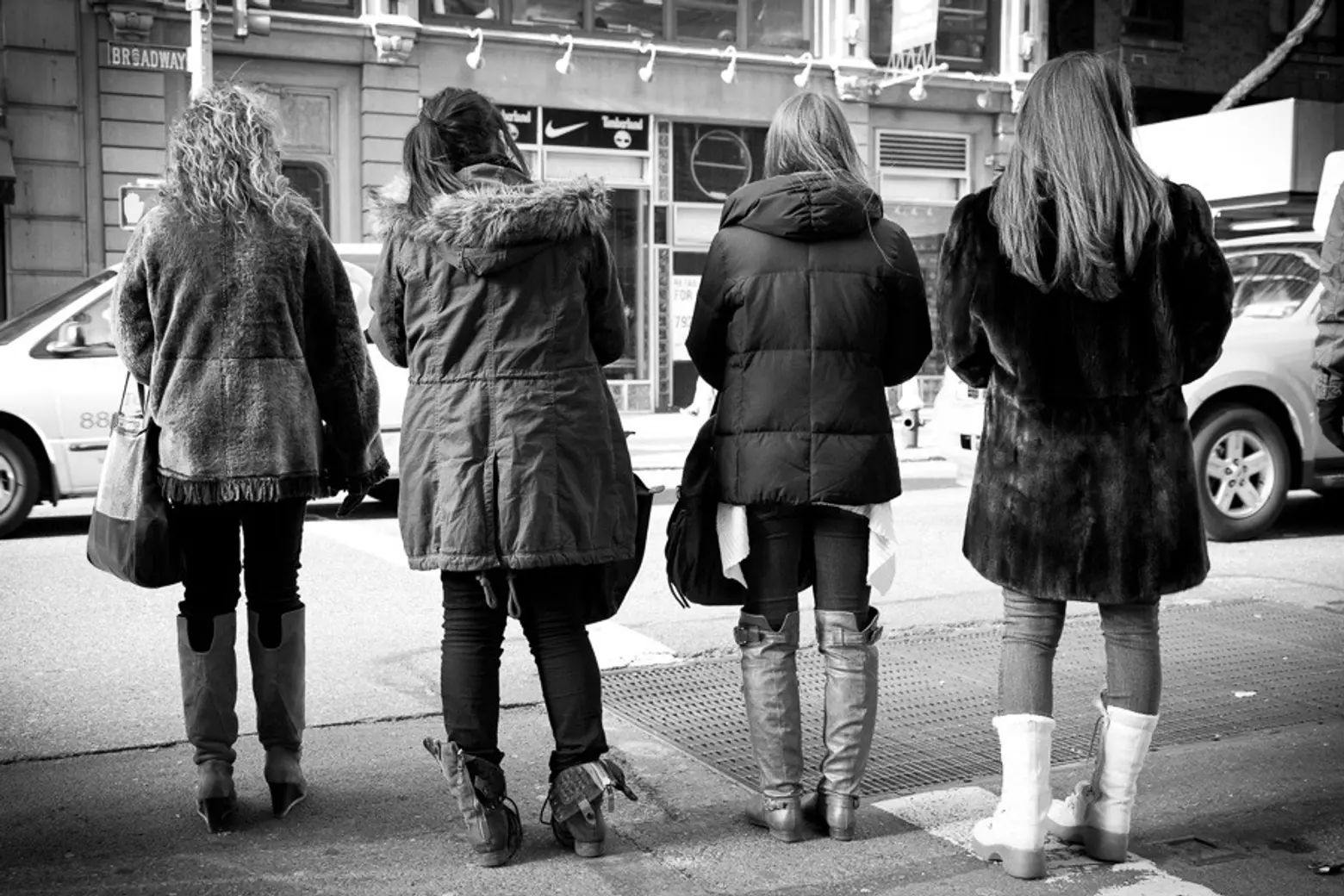
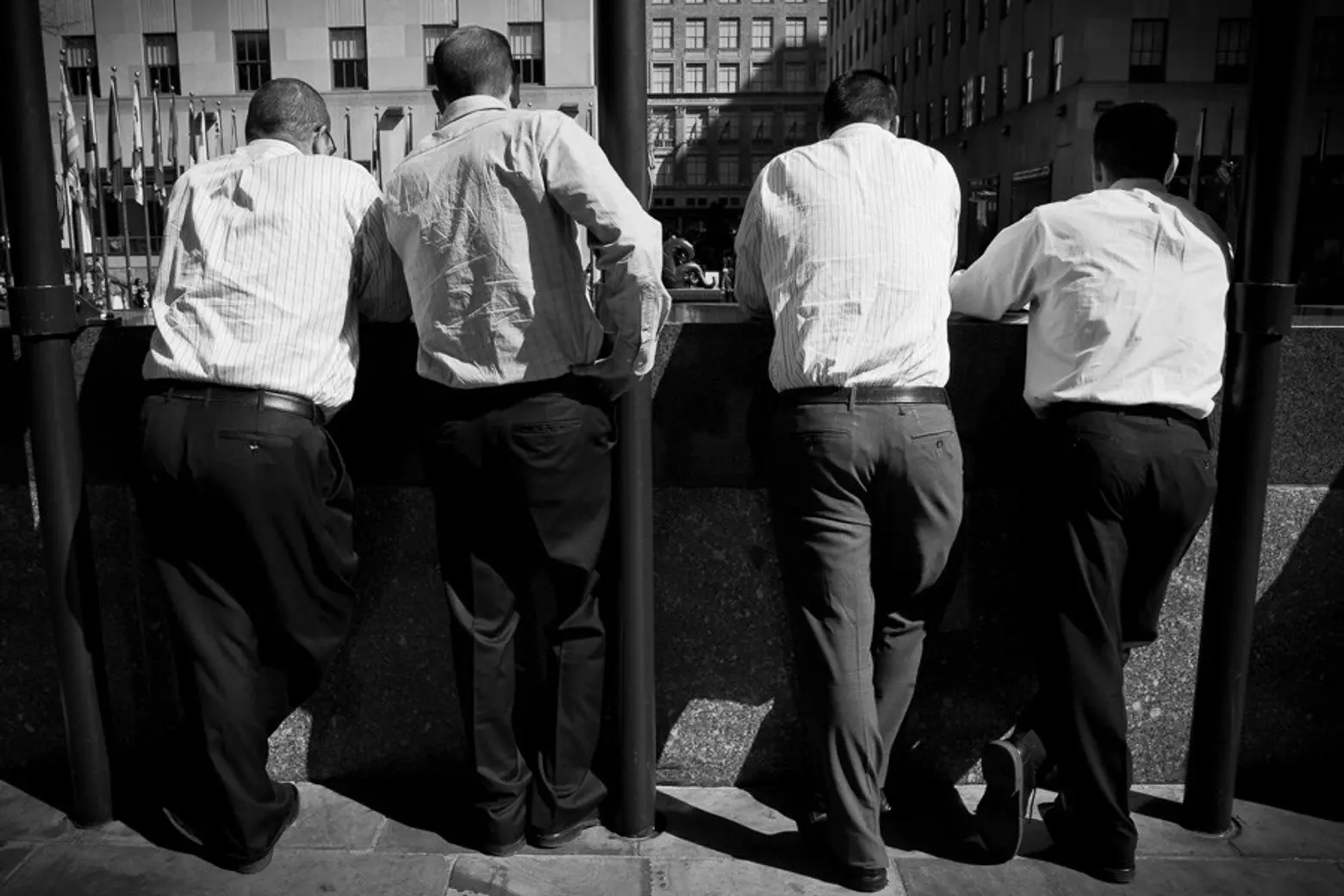
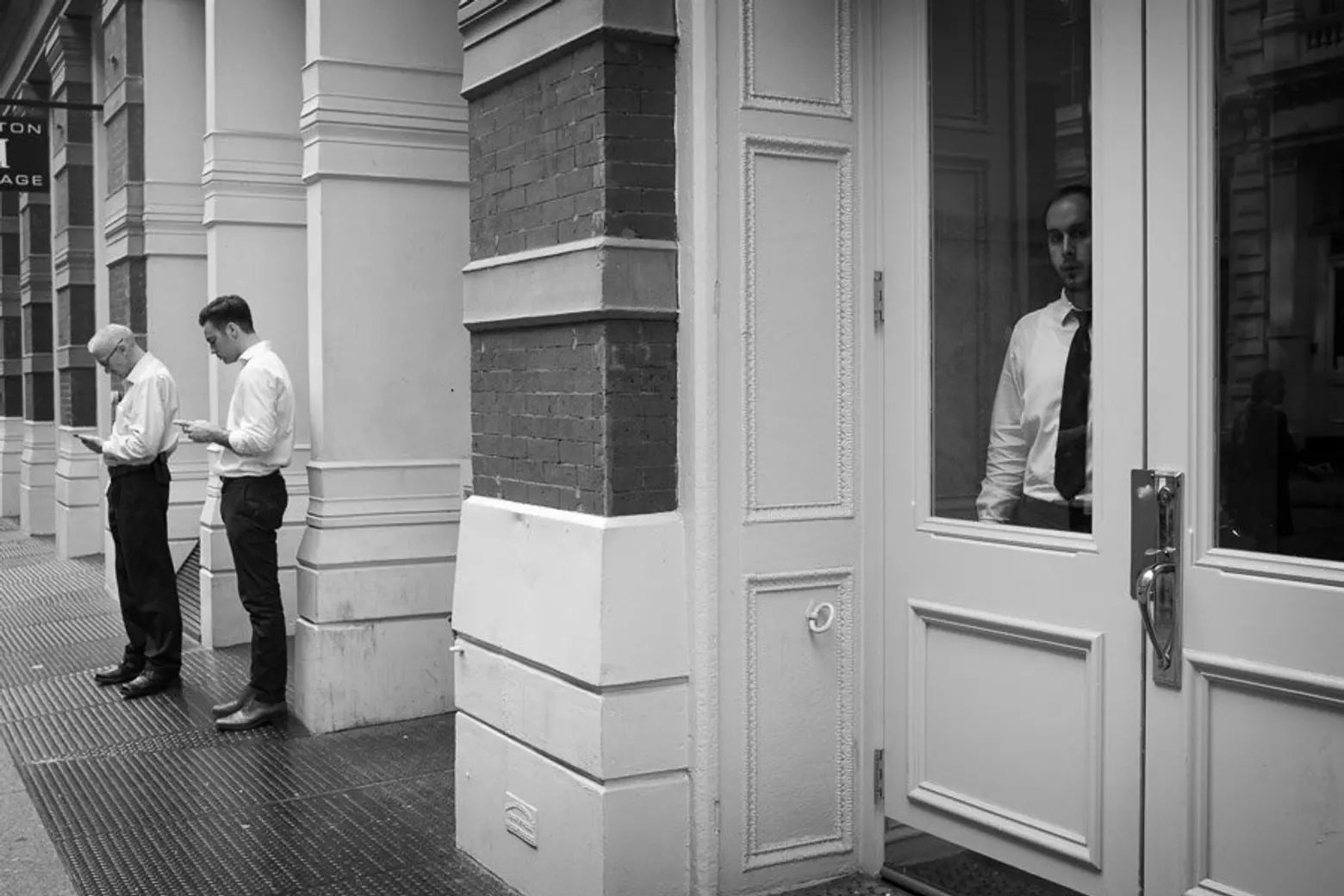
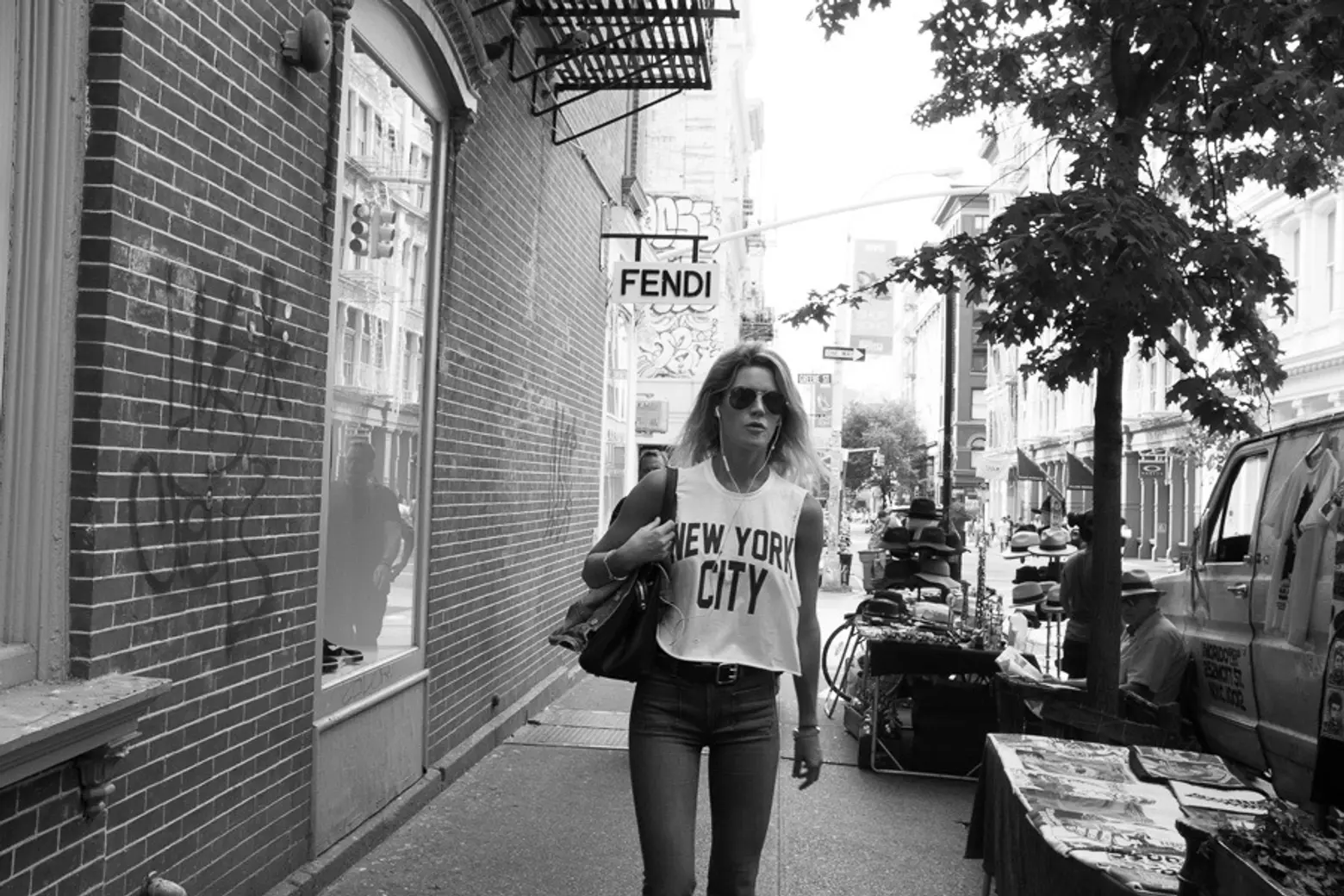
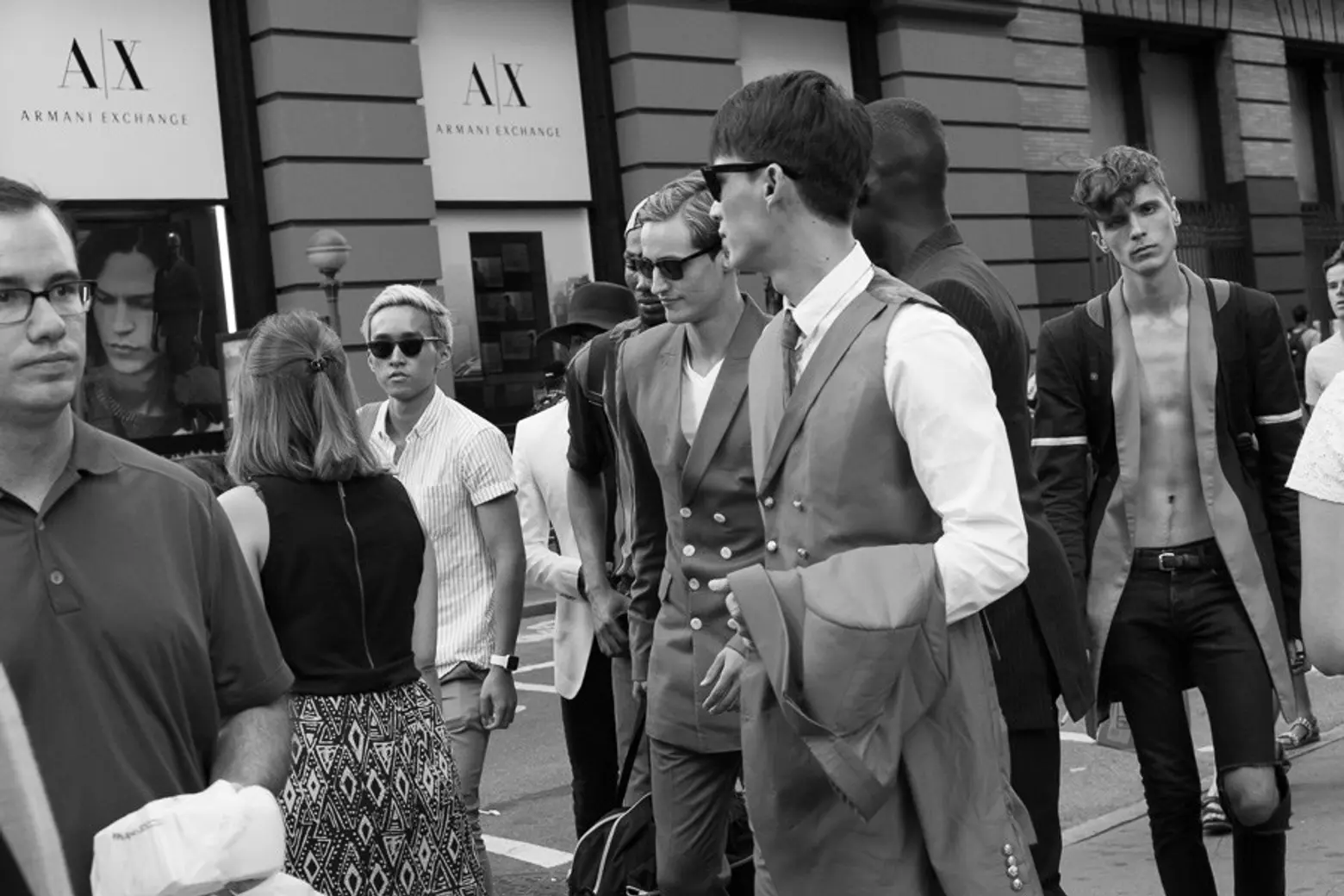
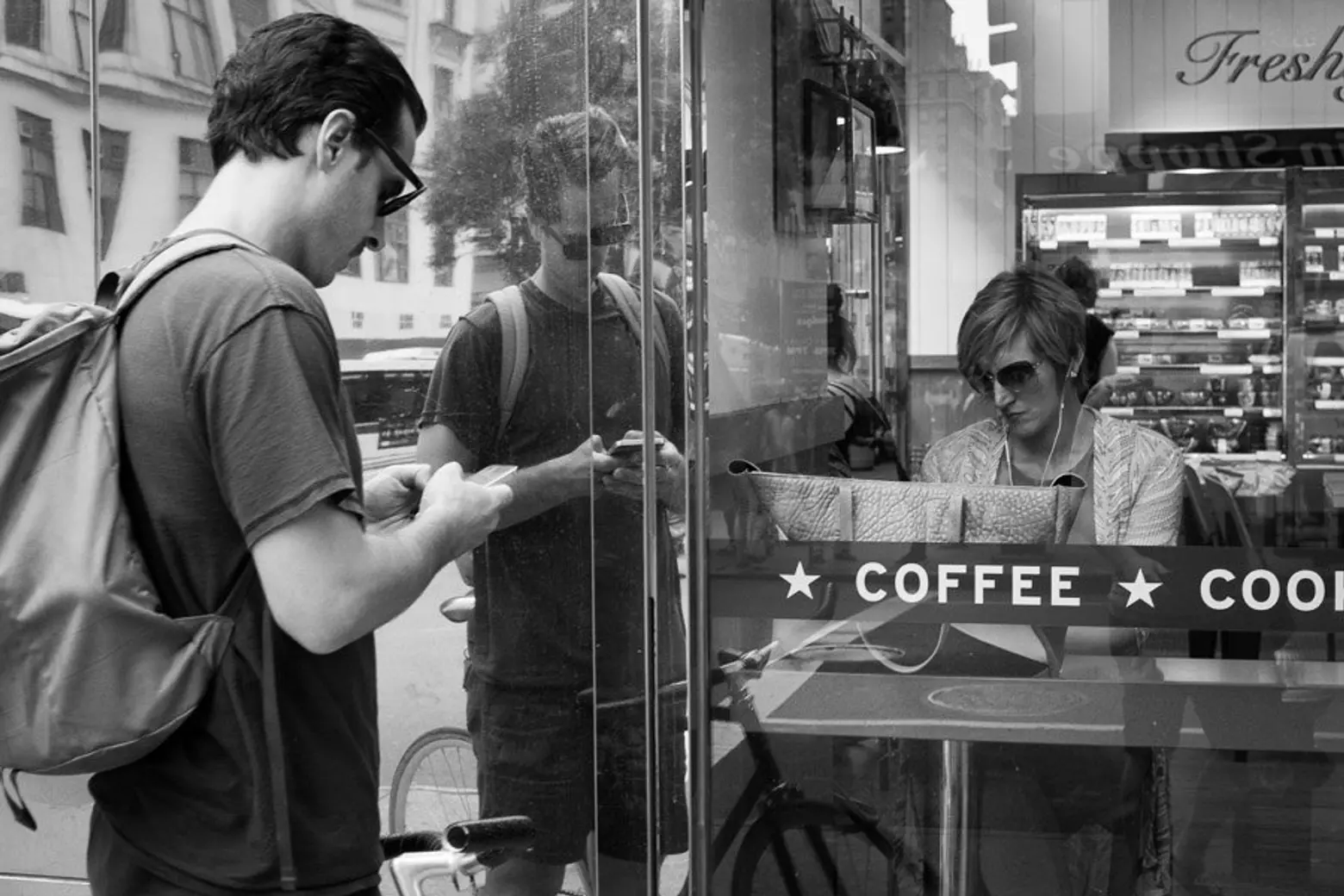
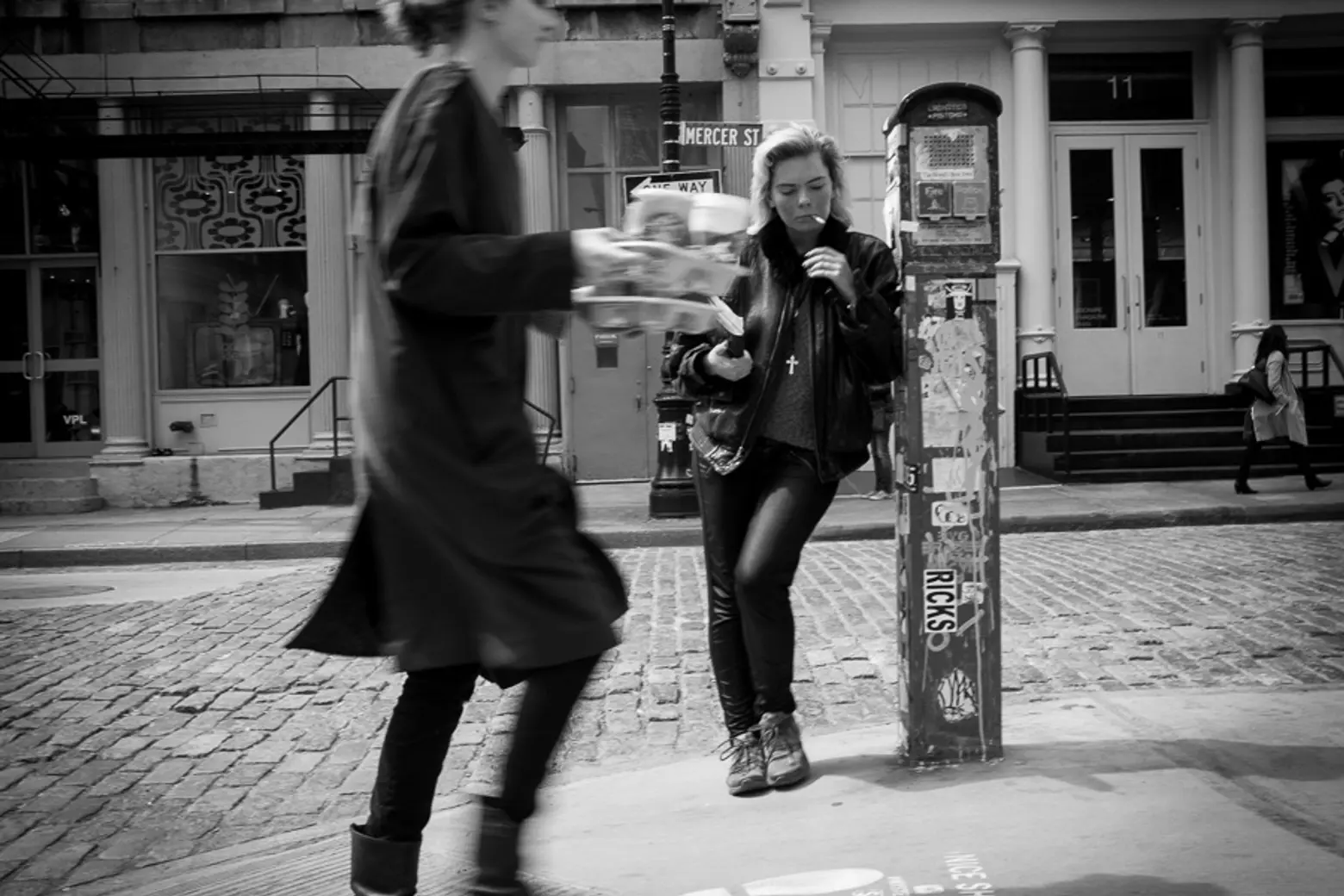
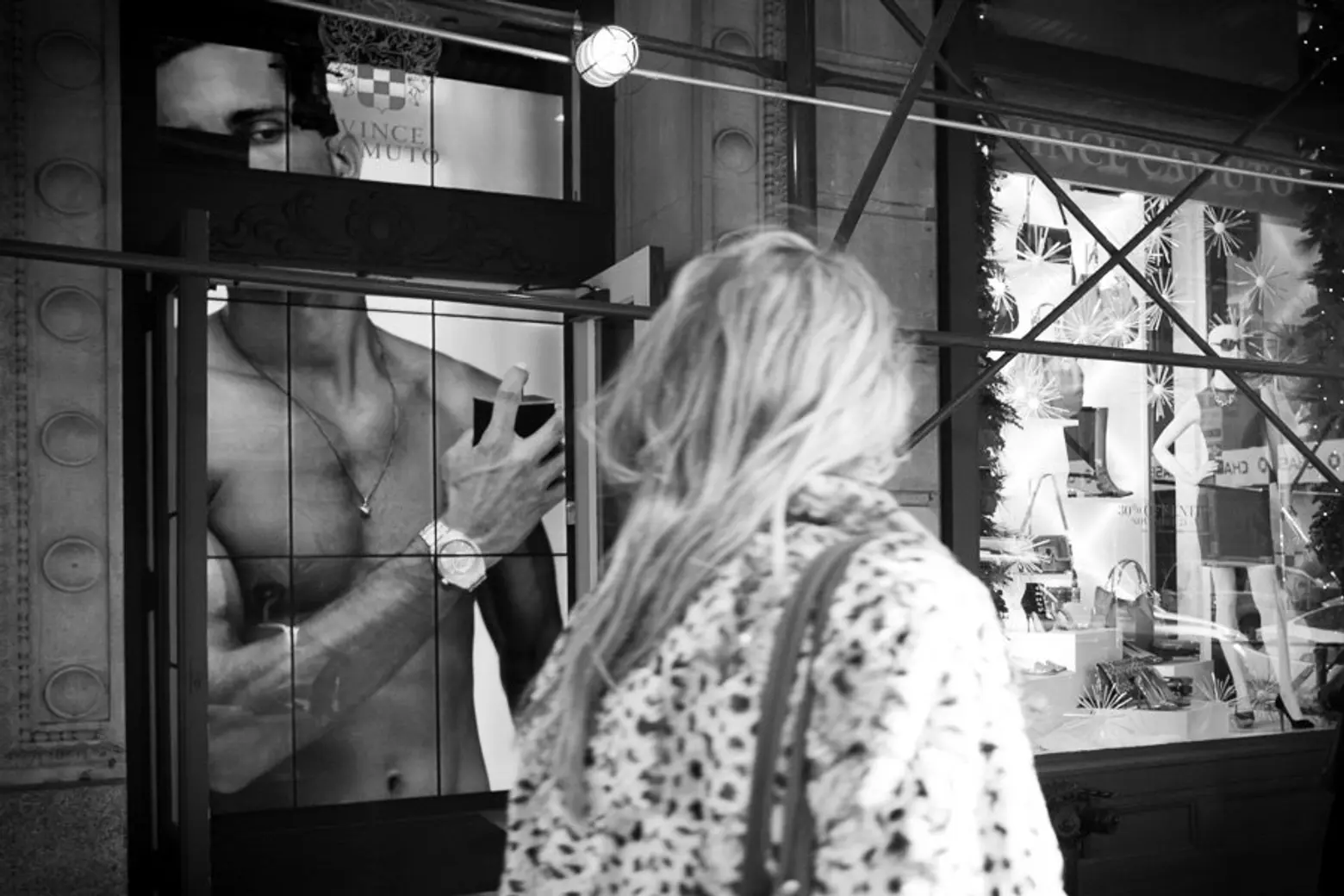
+++
RELATED:
- The Urban Lens: Attis Clopton documents New York’s fleeting moments and faces
- The Urban Lens: Fernando Paz puts a skateboard in the hands of aloof New Yorkers
- The Urban Lens: Nei Valente’s ‘Newsstands’ shows the changing face of media
All photographs © James Maher Photography
